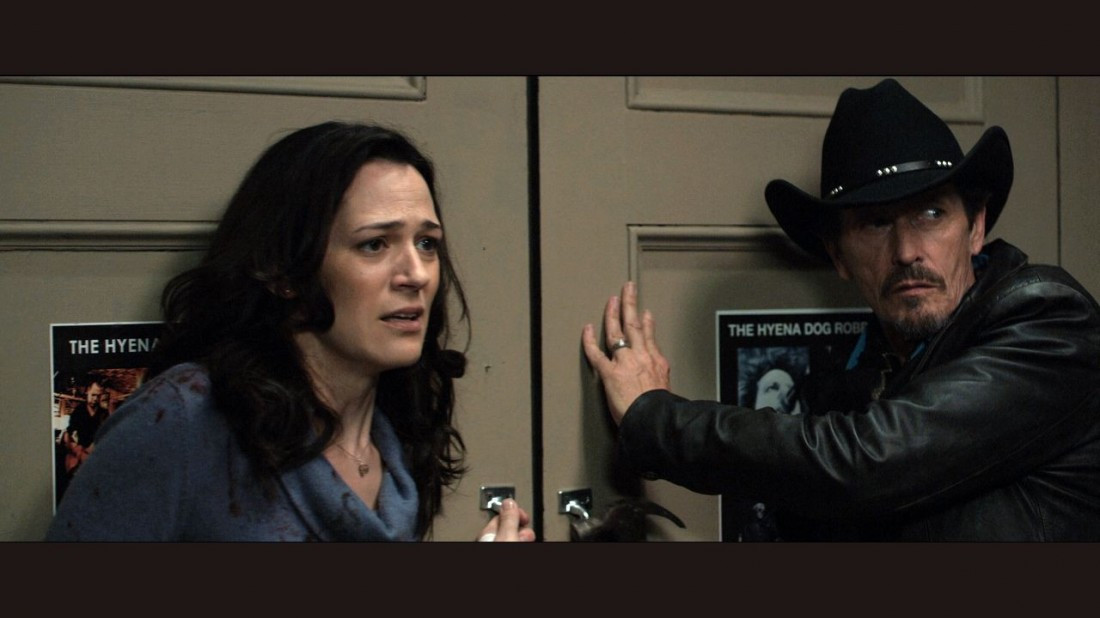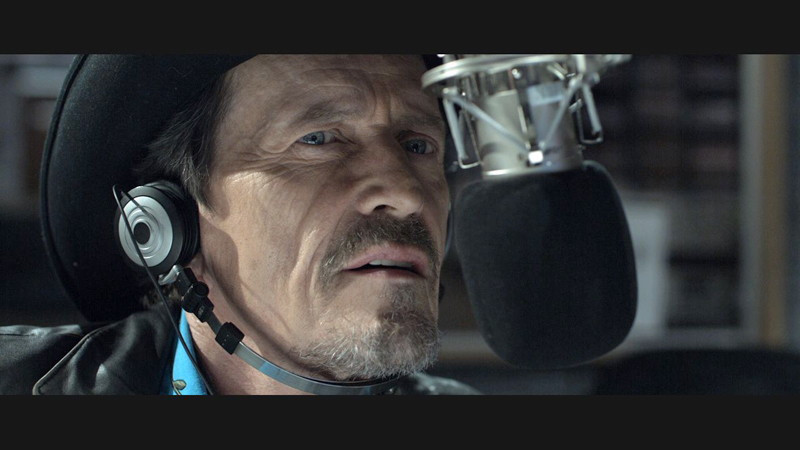Dawn of the dialect
New suspense thriller explores what happens when a virus spread through the English language and infects an Ontario town
That said, I’m pleased to report that Canadian director Bruce McDonald (Hard Core Logo, The Tracy Fragments), in his latest film Pontypool, has managed to do something interesting with possibly the most trite of all horror genres. He’s made a chilling zombie movie with very few actual zombies on screen.
The film takes place entirely within a church basement, which happens to double as a broadcast centre for the town of Pontypool’s local radio station. Morning host Grant Massey (Stephen McHattie), his producer Sidney (Lisa Houle) and their technician Laurel Ann (Georgina Reilly) are settling in for what they expect to be a regular day of school closures and local news when they begin hearing odd reports of riots. Before long the riots have escalated into something far more frightening, and the three must find a way to survive the looming attackers all around them.
The film owes a lot to Orson Welles and his infamous 1938 broadcast of The War of the Worlds, which originated the idea of presenting horrific events through fragmented news reports.
McDonald’s technique goes against the oldest movie convention and tells rather than shows. This method serves the film well, as it allows the viewer to paint a much more horrific image of the world outside than the film’s modest budget could have ever allowed for.
Although this film doesn’t accomplish what Welles’ broadcast did, it is an interesting revisiting of the questions of journalistic responsibility that arose from that monumental event.
In its best moments, Pontypool wrestles with some heady moral dilemmas: should broadcasters share news even if it has the potential to make things worse? Who has the authority to validate or restrict the flow of information? Are lies OK if they make people happy?
In its worst moments, Pontypool feels as though you’re sitting through a linguistics lecture. McDonald and his writers are obviously very interested in language and the power it possesses; however, in the final reel, it seems like the filmmakers have spent a little too much time reading Barthes and De Saussure, and debating signifiers versus the signified.
Unfortunately this forces a rather academic and anti-climactic ending to an otherwise satisfying and well-constructed film.
Published in Volume 63, Number 22 of The Uniter (March 5, 2009)








